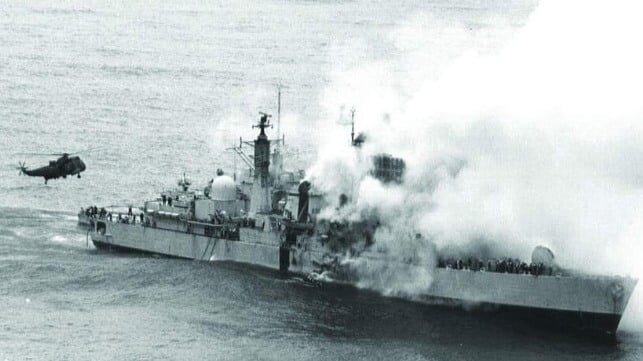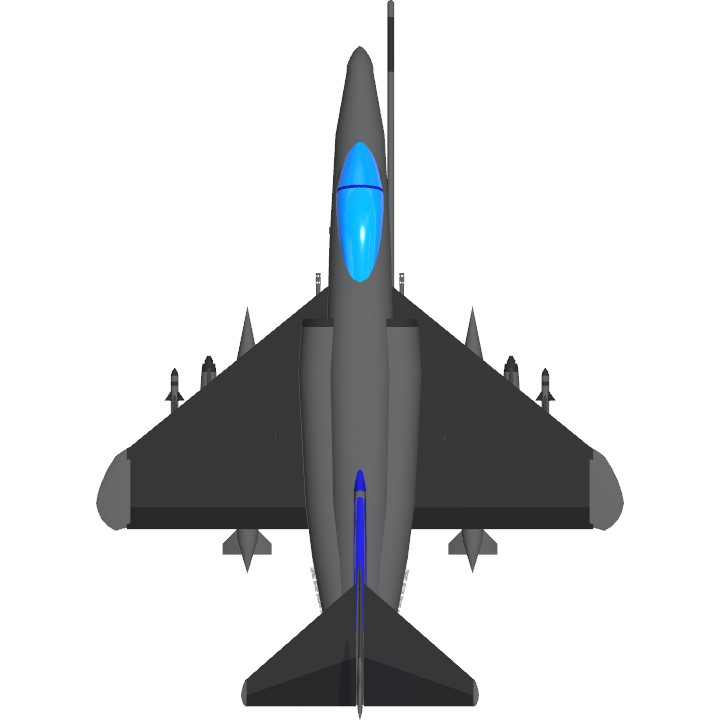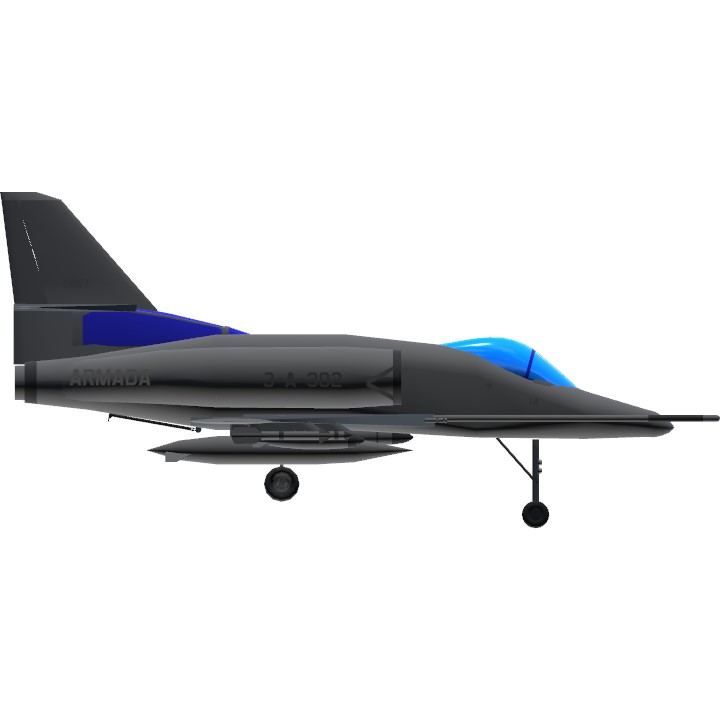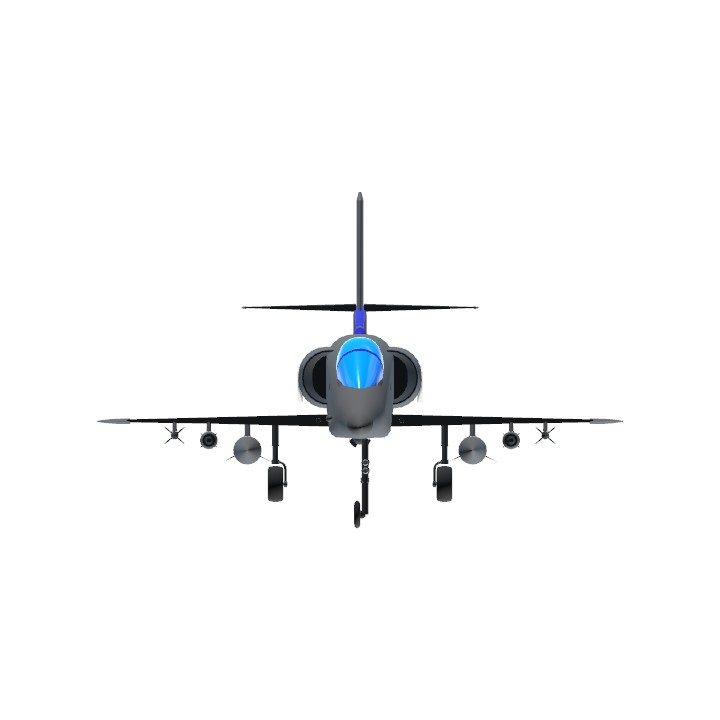NOTE: With the new standards on AI (which limits the part counts to under 96 parts), this plane may not be AI-friendly anymore OR you can remove the external fuel tanks and its pylons to reduce part counts and keep it AI capable -
A4-Skyhawk featuring the Argentine Navy markings.
Argentine Navy A-4Q 0655/3-A-202 in 2007

equipped with the famous Exocet anti-shipping missile.
Comrade! you can play it or download and save it as your AI plane. To be compatible also as an AI plane, I have the parts count to 99 parts and 7 control surfaces. For the VR users, there is a minimal VR capable cockpit for a better dogfight.
Features:
Pilot figure, MInimal VR
Landing Hook for carrier landing
2 Guns,
2x Mark82 bombs
2x AIM-9A air to air missiles
1x Exocet-M
Top Speed: 660 mph
Landing speed: 120 mph
AG-2 Drop tanks
AG-4 Drop both Mark82 bombs
Enjoy!
History:

May 4, 1982 – HMS Sheffield burns after being struck by an Argentine Exocet missile. (Photo via Wikimedia Commons)
The Douglas A-4 Skyhawk is a single-seat subsonic carrier-capable light attack aircraft developed for the United States Navy and United States Marine Corps in the early 1950s. The delta-winged, single turbojet engined Skyhawk was designed and produced by Douglas Aircraft Company, and later by McDonnell Douglas. It was originally designated A4D under the U.S. Navy's pre-1962 designation system.
The Skyhawk is a relatively light aircraft, with a maximum takeoff weight of 24,500 pounds (11,100 kg), and a top speed of 670 miles per hour (1,080 km/h). The aircraft's five hardpoints support a variety of missiles, bombs, and other munitions.
It is capable of carrying a bomb load equivalent to that of a World War II–era Boeing B-17 bomber and can deliver nuclear weapons using a low-altitude bombing system and a "loft" delivery technique.
(Wikiprdia)
Specifications
General Characteristics
- Predecessor 25 parts A4-Skyhawk
- Successors 1 airplane(s) +14 bonus
- Created On iOS
- Wingspan 31.7ft (9.6m)
- Length 43.2ft (13.2m)
- Height 20.1ft (6.1m)
- Empty Weight 12,303lbs (5,580kg)
- Loaded Weight 15,159lbs (6,876kg)
Performance
- Power/Weight Ratio 3.202
- Wing Loading 37.8lbs/ft2 (184.6kg/m2)
- Wing Area 401.0ft2 (37.3m2)
- Drag Points 4981
Parts
- Number of Parts 99
- Control Surfaces 7
- Performance Cost 510







Off the coast of Argentina,
Our islands came to be!
with eighteen hundred people,
and half a million sheep!
The day they were invaded,
everybody learned the name!
.
A Barren little colony has got a bit of fame!
@WinsWings Android only allows 96 parts and (6 WINGS) there is no limit set for control surfaces, but rather wings. iOS AI allows up to a maximum of 99 parte but the wing limit is the same
@Christiant2 Oh, I remember now
@WinsWings I asked you. :)
@Christiant2 I am building the F89, now basic shape is done. It can fly now. I am start adding the details
@WinsWings Yea! :))))
@Christiant2 will do
@WinsWings Yup!
@Christiant2 do you mean Northrop F-89 Scorpion?
Can you make a F-89?
Hermano, es realmente hermoso, gracias🇦🇷😍
@OpSlayer01 yes, maybe in the future. So far I have only done one time transforming a helicopter into a truck. You might already know this
@JustAMiko nice poem
@Nathan8260 noted. Thanks
Can you do a tutorial on had to transfer a aircraft into a car
Best Tell Ever
@MAPA Thanks, I will use it as a standard.
@MAPA so why Android will not approve? It's 99 parts. Is the number of control surfaces okay, since I saw you use 7max?
@WinsWings It's exactly 99
@MAPA Thanks, so what is the safe part count for both iOS and Android?
@MAPA mais um motivo pra eu comprar um IOS
Obrigado kkkkkk
@Gabriel747 +-100
@MAPA não sabia que tinha essa diferença pro IOS quantas peças precisa ter no IOS?
@Gabriel747 It certainly won't be approved by Android AI, but iOS AI will definitely be approved.
@MAPA tipo ele quis fazer isso pra aparecer nos céus assim como seus aviões? Se sim acho que ele errou pois tem 99 peças